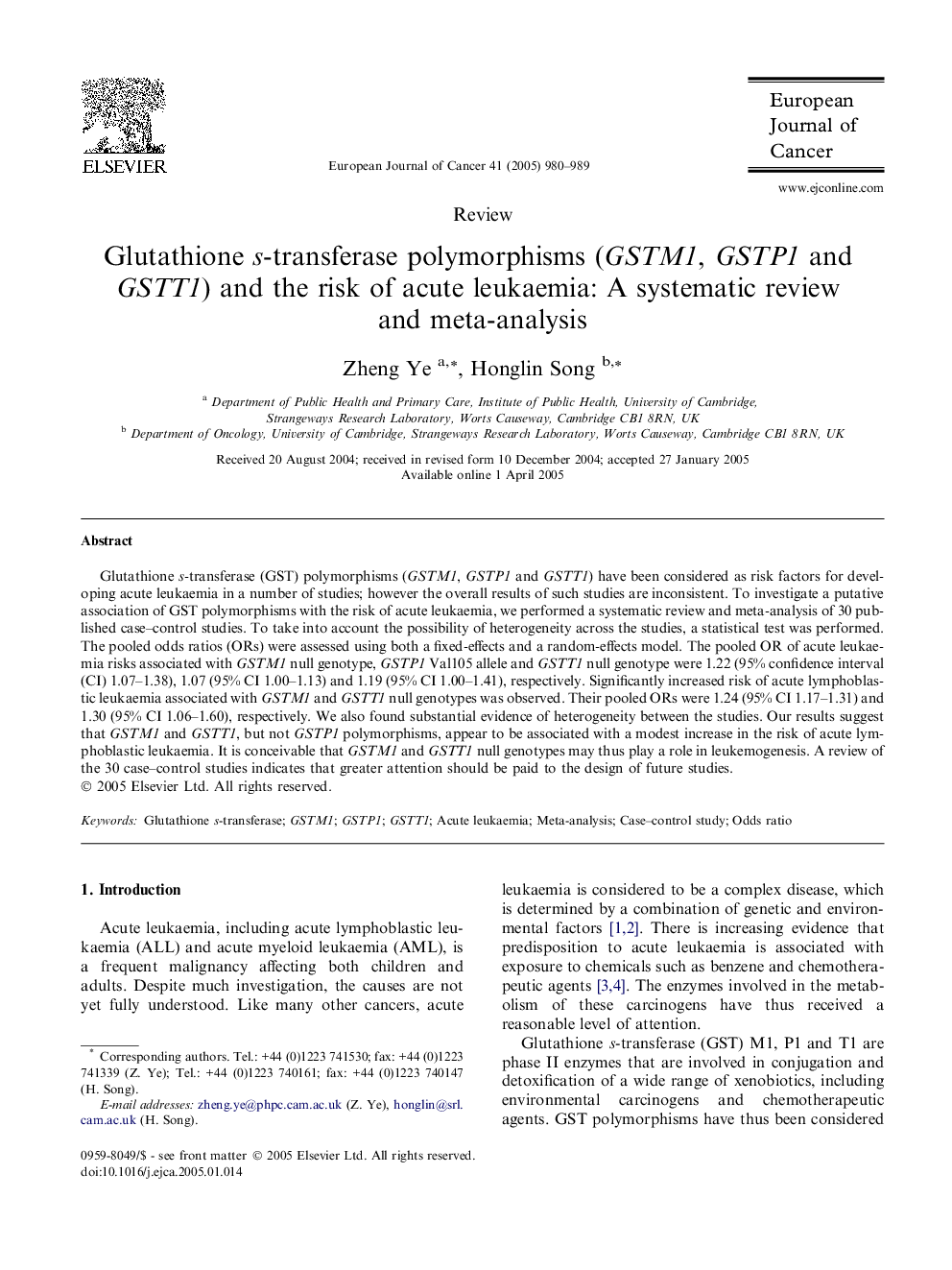| Article ID | Journal | Published Year | Pages | File Type |
|---|---|---|---|---|
| 9905803 | European Journal of Cancer | 2005 | 10 Pages |
Abstract
Glutathione s-transferase (GST) polymorphisms (GSTM1, GSTP1 and GSTT1) have been considered as risk factors for developing acute leukaemia in a number of studies; however the overall results of such studies are inconsistent. To investigate a putative association of GST polymorphisms with the risk of acute leukaemia, we performed a systematic review and meta-analysis of 30 published case-control studies. To take into account the possibility of heterogeneity across the studies, a statistical test was performed. The pooled odds ratios (ORs) were assessed using both a fixed-effects and a random-effects model. The pooled OR of acute leukaemia risks associated with GSTM1 null genotype, GSTP1 Val105 allele and GSTT1 null genotype were 1.22 (95% confidence interval (CI) 1.07-1.38), 1.07 (95% CI 1.00-1.13) and 1.19 (95% CI 1.00-1.41), respectively. Significantly increased risk of acute lymphoblastic leukaemia associated with GSTM1 and GSTT1 null genotypes was observed. Their pooled ORs were 1.24 (95% CI 1.17-1.31) and 1.30 (95% CI 1.06-1.60), respectively. We also found substantial evidence of heterogeneity between the studies. Our results suggest that GSTM1 and GSTT1, but not GSTP1 polymorphisms, appear to be associated with a modest increase in the risk of acute lymphoblastic leukaemia. It is conceivable that GSTM1 and GSTT1 null genotypes may thus play a role in leukemogenesis. A review of the 30 case-control studies indicates that greater attention should be paid to the design of future studies.
Keywords
Related Topics
Life Sciences
Biochemistry, Genetics and Molecular Biology
Cancer Research
Authors
Zheng Ye, Honglin Song,
